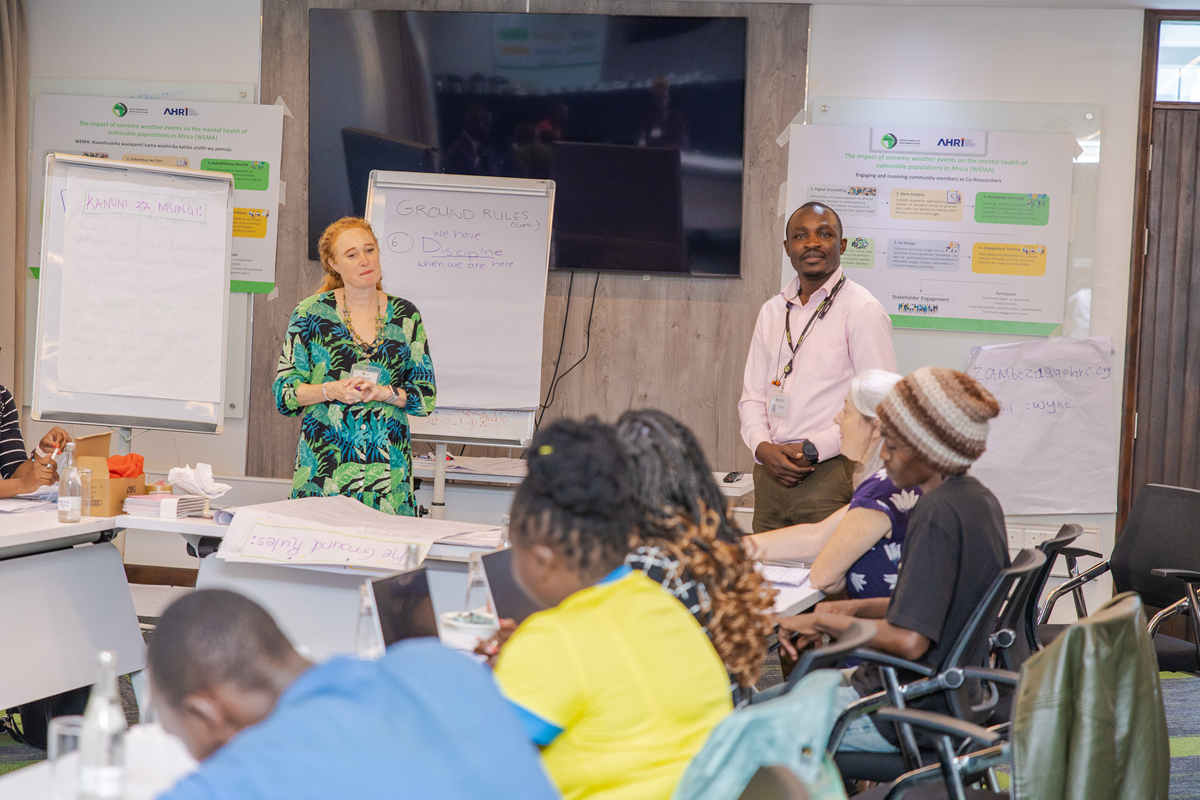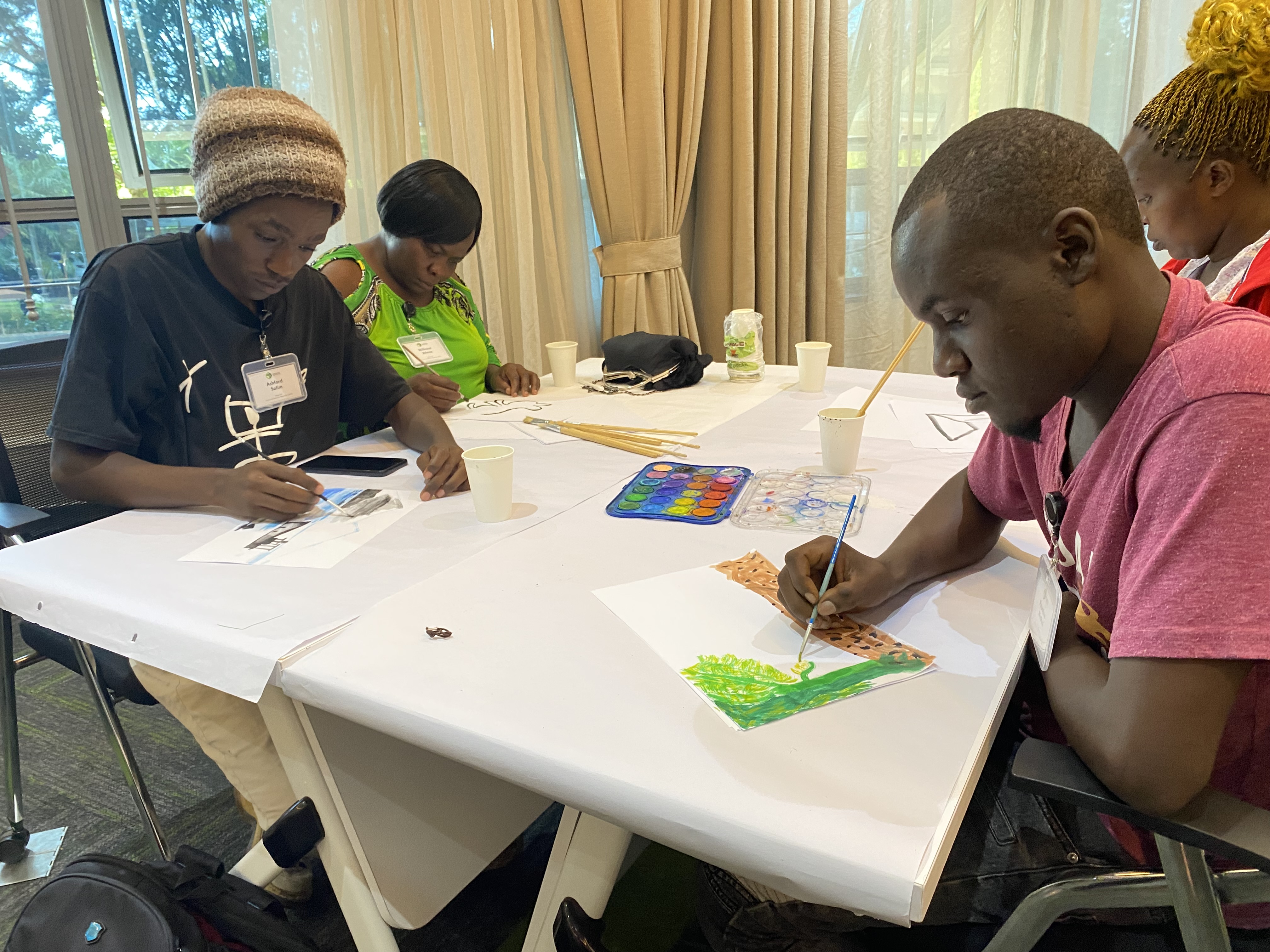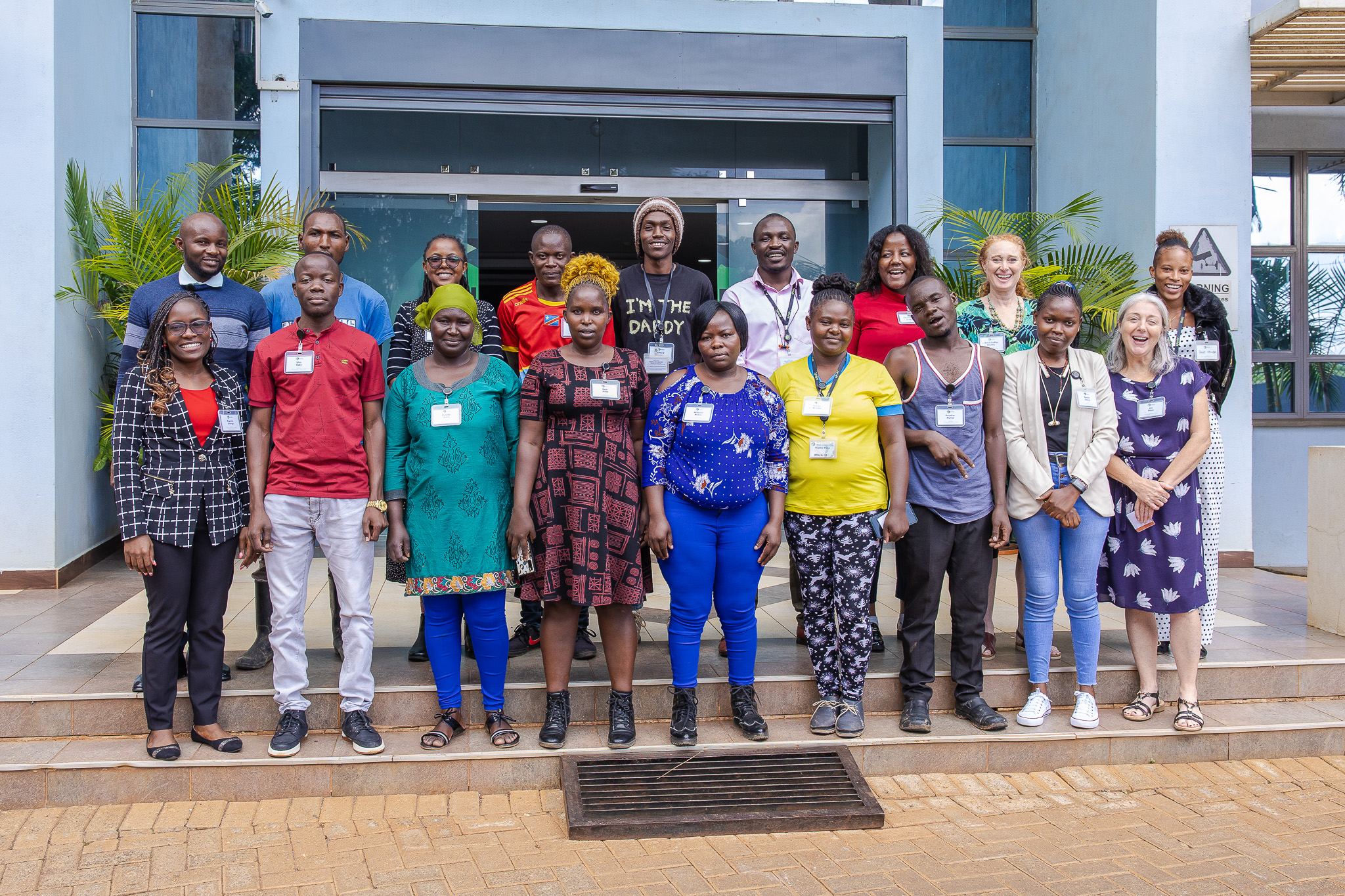
By Eugenia Sirengo, Senior Communications Officer, APHRC and Gill Black, PhD, Engaged Research Specialist

Climate change is increasingly driving the frequency and severity of extreme weather events, including heat waves, floods, and droughts. These events disproportionately affect resource-poor communities already burdened with chronic health challenges, leading to higher rates of injury, illness, and even death. At the same time, much of the focus has been on physical health impacts, the lesser-known and often overlooked effects of climate change lie in its toll on mental health, particularly among vulnerable populations.
So, how do we bring this critical issue to the forefront? One powerful emerging approach is digital storytelling (DST), which is at the heart of the Impact of Extreme Weather Events on the Mental Health of Vulnerable Populations in Africa (WEMA) project.
Digital storytelling is a creative, participatory audio-visual process that brings people's personal experiences to life through the use of digital technology. It combines personal narratives with multimedia elements, such as voice recordings, artwork, and photos, to create compelling and emotive stories. It enables individuals to share their lived experiences in a way that is accessible, personal, and deeply resonant.
A digital story is a short film, typically a few minutes in duration, that conveys a memorable personal experience told in the first person. The visuals often consist of static images, such as drawings, paintings, photographs, or collages produced during facilitated workshops. The use and sharing of digital stories depend on the initial purpose of their creation and the storyteller's informed, written consent once the story is complete.
DST is a central element of the WEMA project, integrated through partnership with affected communities in Burkina Faso, Kenya, Mozambique, and South Africa. In each country, researchers and practitioners are collaborating with ten community-based co-researchers (CBCRs) to generate grounded evidence using digital storytelling.
In each WEMA area, co-researchers from highly vulnerable communities, aged 18-70 and inclusive of all genders, compile digital stories. This process empowers them to share their experiences of extreme weather, particularly flooding, in their own words, thereby meaningfully including them as local experts in the research.
In Kenya, the African Population and Health Research Center (APHRC) leads the WEMA project, collaborating with ten Community-Based Co-Researchers (CBCRs) from Mukuru Kwa Reuben, an informal settlement highly vulnerable to flooding. These CBCRs, selected for their diverse experiences with extreme weather, participated in a week-long digital storytelling workshop at APHRC in May 2025.

Guided by experts and provided with tablets and art supplies, the CBCRs created digital stories that combined visuals and audio to highlight the impact of climate change on their mental health. For many, this was their first digital storytelling experience, offering a surprisingly comforting and expressive outlet through art. Beyond art, the simple act of listening to each other’s stories became a powerful form of therapy. Many participants had carried their struggles in silence, believing they were alone in their suffering.
“Hearing others talk about their fears, how they couldn’t sleep during the floods, how they worried about their children getting sick, made me realize I wasn’t the only one,” said one participant.

This sense of shared experience and mutual support lessened the weight of their struggles, fostering a strong sense of community and empathy among the participants. Some shared how the storytelling process helped them uncover buried trauma. One participant broke down as she recorded her narrative, realizing for the first time how deeply the floods had affected her.
“I thought I was fine because I kept moving, kept working. But telling my story made me see I was still carrying that fear inside me.”
The facilitation of digital storytelling entails numerous ethical implications and considerations, making it essential to be aware of these in advance. It is vital to approach this type of work with respect, humility, reflexivity, sufficient time, ample resources, and, crucially, in the presence of strong psychosocial support. The DST workshops at all WEMA sites incorporate psychosocial support to help participants recognize and process emotions they may have been suppressing for years.
“We don’t talk about mental health in our community’’ admitted one participant. “But this group in the workshop, along with the counselling support provided, has made it safe to say I’m not okay and express my feelings."
Community engagement is integral to the WEMA project, and digital storytelling is just the beginning. The community-based co-researchers, empowered by their experiences and the digital storytelling process, will be deeply consulted at key stages.
After analysing and interpreting their stories via participatory thematic analysis, the co-researchers will be equipped to participate in knowledge exchange and brainstorming activities with the project scientists. They will contribute to the development of contextually appropriate mental health strategies.
For the WEMA project, the digital stories play two vital roles. Firstly, the narrative and visual aspects will provide data to inform mental health practice and policy. Secondly, the stories will be presented, individually or in collections, in diverse forums to illustrate lived realities and reinforce scientific findings. In these forums, including engagement with policymakers, the community-based co-researchers will present their own stories to share their lived experiences of extreme weather directly and to highlight priorities for local and national mental health support during weather crises.

Understanding the experiences and perspectives of people who live in the harsh realities of extreme weather will shed essential light on contextually appropriate and effective mediation to protect and strengthen mental health. Working in partnership with community-based co-researchers through a process underpinned by digital storytelling will not only deepen and enrich the evidence generated through WEMA but also inform mental health interventions that can work most effectively in the places and for the people who need them most.
These digital stories, whether shared individually or collectively, hold the power to raise awareness, shift public perception, and inform action plans. By making the lived experiences of vulnerable populations visible and heard, we hope to catalyze change and underline the urgency of addressing climate-related mental health challenges.
Watch CBCR Ashford Salim's digital story here.